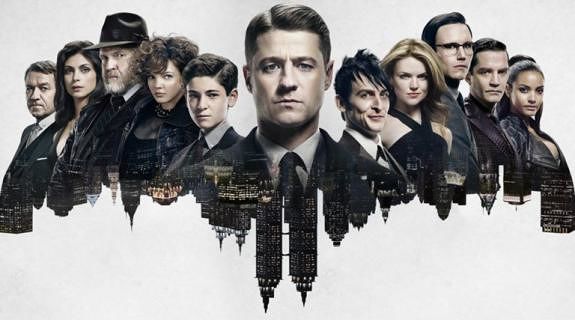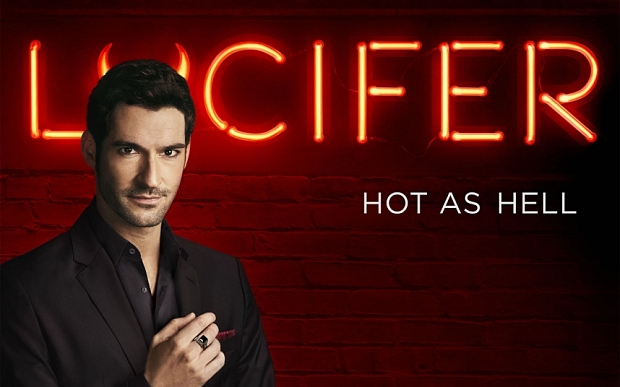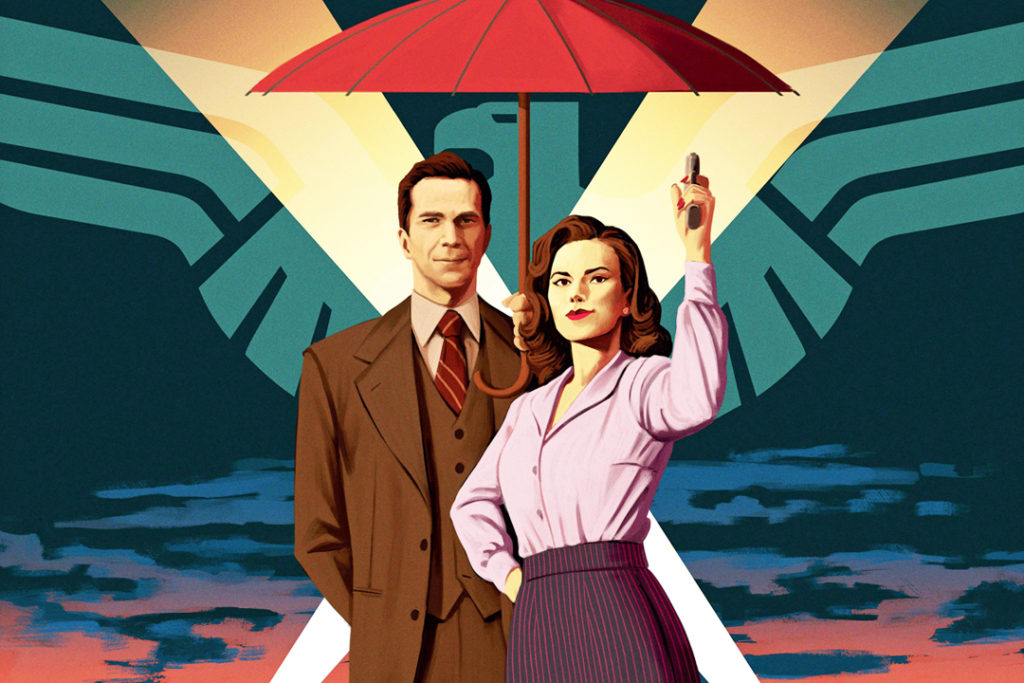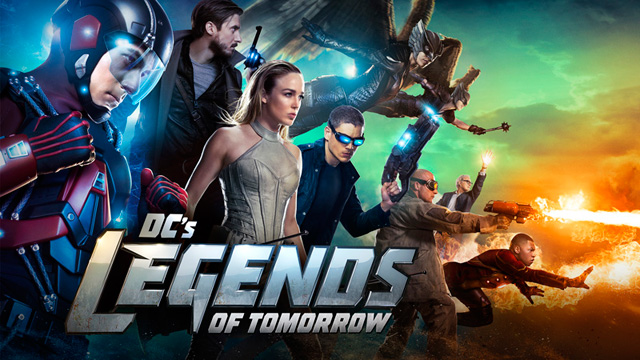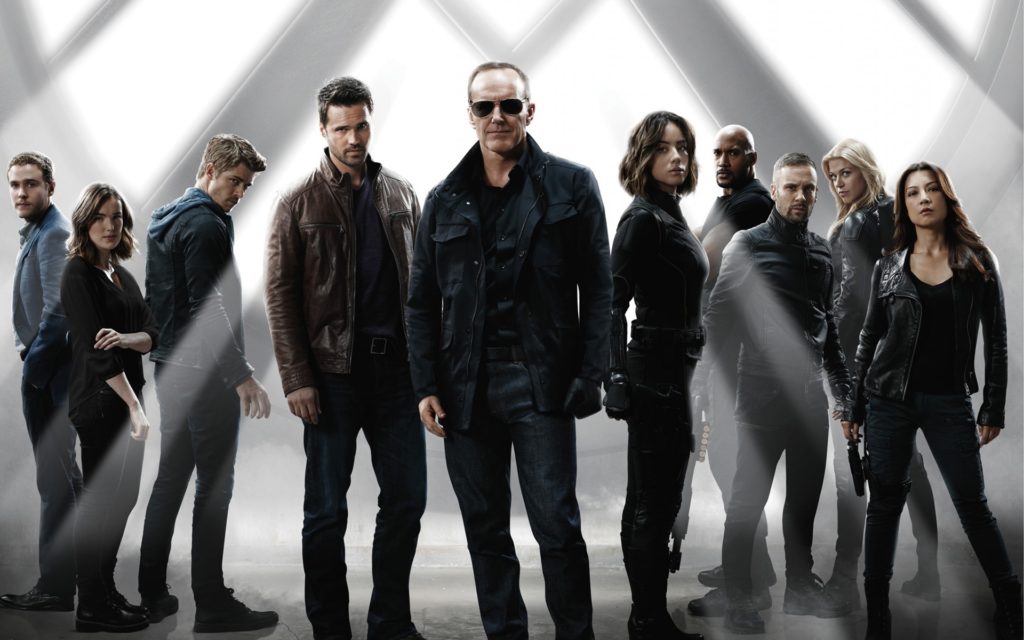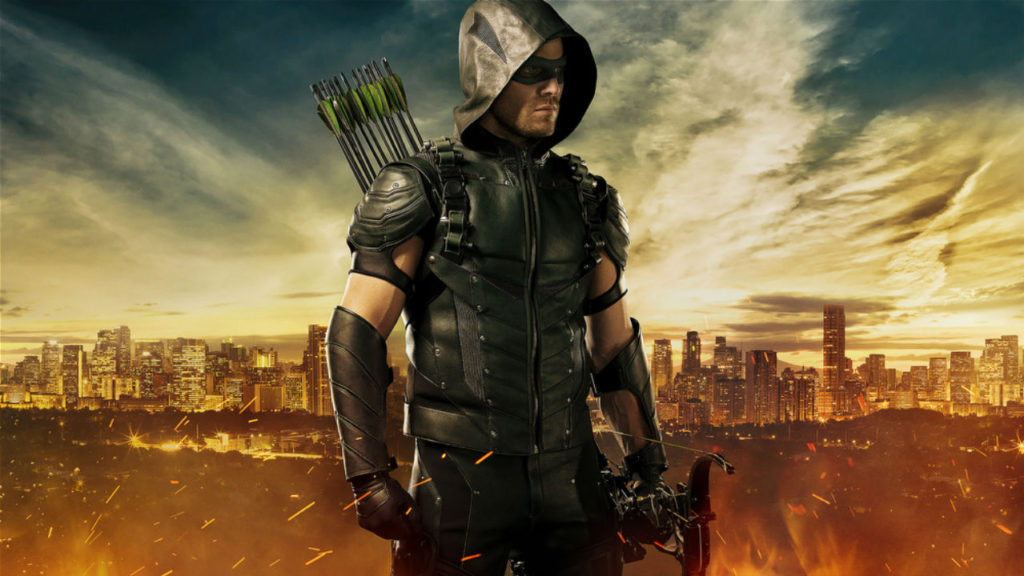And we come to the end. What are, in my estimation, the top five comic book shows on TV last season, and why. You know the drill, let’s get into it.
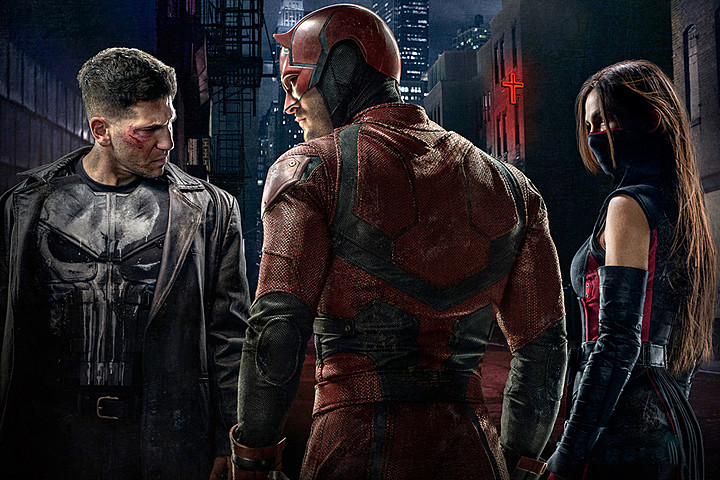
Premise: Matt Murdock’s war to protect the people of Hell’s Kitchen is complicated not only by a DA out to round up New York’s vigilantes (at least the ones who don’t appear in movies), but by the arrival to the Kitchen of lethal vigilante Frank Castle, and Matt’s dangerous ex, Elektra Natchios.
So we’ve talked about the Punisher. Repeatedly. And for a reason. As long as the Punisher was happening, Daredevil was every bit as good, if not better, than its freshman outing. So why, you might ask, has it slipped from first place to fifth since last year? Because the parts not dealing with the Punisher ended up more lacklustre. We’ll cover that down below. But despite all of the flaws I’m about to list, there’s still enough of the first season in there to make it above average. And what they did well, they did well enough to push Daredevil above Arrow for a second year. Although it was close.
Strengths: All things Punisher. The fight scenes, when you can see them. Deborah Ann Woll is doing amazing work, even if Karen Page’s story gets weird towards the back half. Breaking the season into mini-arcs.
Weaknesses: Okay, we’re gonna need a speed round for all of these plot holes and problems…
- Elektra’s one of Daredevil’s strongest female characters in the comics. Here she has to decide which male figure is going to determine how she lives her life. That’s… weak.
- Why did the Hand dig a giant hole? What was that accomplishing?
- No, wait, the Hand’s big goal, this Black Sky they’ve been hinting at since last year, is just a person who’s good at killing? That’s it? How does that help them rule the world? How does that even help them rule New York, let alone a world filled with Avengers and Inhumans and magic space rocks?
- The producers are so committed to Matt’s martyrdom that there’s never a fight he wins easily. He has to struggle each time. So the army of ninjas loses some bite when they give Matt exactly as much trouble as the biker gang from episode three.
- They put a lot of effort into their fight scenes. Maybe if they’d lit a few more of them…
- Elden Henson seriously whiffs a few of Foggy Nelson’s big emotional moments. He was a better actor last year.
- How does a legal assistant get a job as an investigative reporter? There have to be dozens of journalism majors for every open newspaper job.
- How does someone not get fired for spending weeks, maybe longer on a story only to write a junior high essay about heroes?
- How is the DA targeting New York vigilantes and her number two target (after the Punisher) is licensed private detective and only part-time-at-best vigilante Jessica Jones? Not Spider-man? No Inhumans? No mention of Sokovia, even? I mean, Jesus Christ, Marvel, be a unified universe or don’t.
- Daredevil sure gets blasé about fighting next to people who are killing people by the end.
- Every Asian on this show is in a sinister ninja cult. That’s… not great.
- And how does the season start in a summer heat wave and end at Christmas? Everything seems to happen in a matter of weeks at most, not months.
Feels like a lot, doesn’t it. See, Arrow, if you’d dial back the Felicity drama even a little you’d make the top five easily.
High point: New York’s Finest/Penny and Dime. The best fight, the best Punisher/Daredevil confrontations, Daredevil at its best.
Low point: The Dark at the End of the Tunnel. Poorly lit fights and the Elektra/Hand plot takes a turn for the stupid. Seriously, that’s your endgame? Your Black Sky would have their hands full against freaking Ant-Man, let alone the Vision.
Tips for next season: Turn on some damned lights. Have a better Big Bad, ’cause the Hand flopped hard. Focus on New York if you want but either try to remember that the larger MCU exists, or officially secede. I mean, we’ve seen how multiverses can work…
4. The Flash
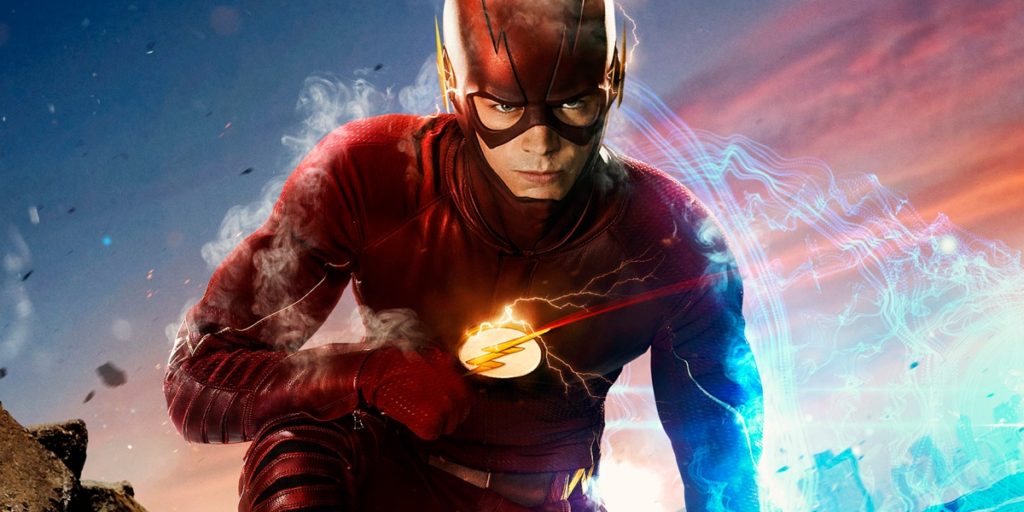
Premise: After the events of last year’s finale, Flash learns that he has opened breaches to an alternate Earth, and drawn the attention of evil speedster Zoom.
Few shows on this list embrace the wacky and weird world of comic books like The Flash. After introducing super powers, time travel, and giant telepathic gorillas in season one, in season two they plunged right into one of DC’s on-again off-again favourite devices since the seminal The Flash of Two Worlds, the multiverse. This helped to propel their early episodes to fun heights. They still manage the best blend of action, humour, and heart. Even if they didn’t quite stick the landing.
Strengths: I haven’t really found a place in these blogs to talk about what an asset to the show Tom Cavanaugh is, but he’s great. Even when the finale handed him one of the most ridiculous comic book nonsense lines of any show this year. Also, new characters Wally West, Jesse Wells, and in particular Patty Spivot ranged from good to delightful. Grant Gustin remains delightful even when Barry is pissing me off. Cisco and Caitlin might not make the supporting character podium, but they did some good work this year. Not only did they bring back the telepathic gorilla, they upped themselves with a giant man-shark.
Weaknesses: First off, Earth Two has the Justice Society, Earth Three has all the evil doppelgangers, come on guys, you know this. That said. The Increasingly Poor Decisions of Barry Allen really did wear thin over the back third. More problematic, when we hit peak Bad Barry Choices, we also ran out of plotline for Zoom. For the last five episodes, there was no nuance, no subtlety, no real surprises. One of the best aspects of Reverse Flash’s plot in season one was that his motivation turned out to be incredibly simple. Zoom’s motivation was also simple, but worse: it boiled down to “Zoom just likes killing.” That’s fine for a one-off villain or Krombopulos Michael, but a season-long villain needs more than that. Ultimately Zoom was a horrible waste of a far better comic villain. A weak ending was enough to knock Flash all the way down to number four. Also, like Arrow, they had to spend some time setting up Legends of Tomorrow, but other than the “Well, need a new Firestorm, I guess” episode, it was low impact.
And man… why’d they have to write Patty out… she was great…
High point: Welcome to/Escape From Earth 2. A high-paced trek through the much-mentioned, until-then-little-seen Earth-2 filled with Easter Eggs (including our first glimpses of Jonah Hex and Connor Hawke, who would later pop up on Legends), fun evil versions of multiple characters, and a big hint towards a coming twist. Not even the first Poor Decision of Barry Allen could sink this two-parter.
Low point: Back to Normal. After a disastrous decision on Barry’s end, Barry learns to adjust to life without powers. Again. Second time in as many seasons. Waiting for Barry to get his speed back slowed the season to a crawl right when it should have been accelerating–that was a lot of speed references in a thing about The Flash, it just happens.
Tips for next season: Okay. I saw what you did at the end of the finale. So let me say this… if you’re doing what we all think you’re doing… don’t drag it out. I’ve been promised a four-show crossover for episode eight, and I do not want it to be a week-long wrap up to TV Flashpoint.
…Actually I want a Flashpoint story featuring characters from all four shows incredibly bad, but I’d rather the other three not to have to put their own stories on pause to make it happen. So maybe try to keep it to four episodes, tops? And then once you’re done, write a better villain. I know you know how.
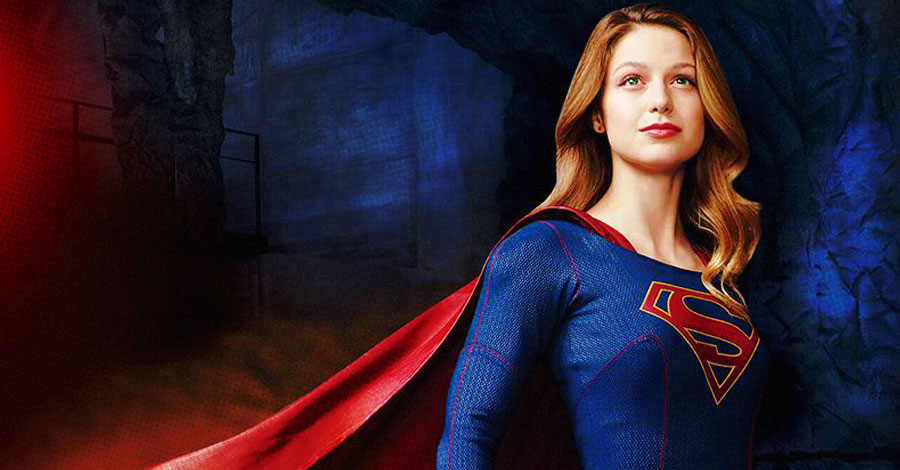
Premise: Kara Zor-El, strange visitor from another planet, decides she’s tired of living in secret as Kara Danvers, and sets out to protect the world as Supergirl. Just like her more famous cousin.
Remember what I said about embracing comic booky-ness? About 630 words ago? Well, there’s one other show doing it as well as the Flash. And it’s also surpassed its brother show in terms of cheer and hopefulness. Supergirl’s first season delivers all the geeky fun of the Flash’s, plus better blends of combat and special effects, and some delightful surprises for long-term fans and newbies alike. It can be a little cheesy at times, but if you can get past that, there’s a lot to love.
Strengths: Melissa Benoist. Chyler Leigh. The evolution of Hank Henshaw’s relationship to Supergirl. Calista Flockhart takes Cat Grant from stereotypical “mean boss” to a surprisingly effective mentor for Kara’s civilian and super identities. Jeremy Jordan as Winn. Top notch special effects for TV. Max Lord worked well as a recurring antagonist.
Weaknesses: Sometimes the feminism can be a little on-the-nose. And sometimes the dialogue can be a little cheesy or clunky. And Kara and James Olsen could have better chemistry if we’re supposed to be invested in them as a thing.
High point: Worlds Finest. The Flash comes to National City, and it is Ah. Maze. Zing.
Low point: Red Faced. Where to start. The episode has four villain characters, meaning it doesn’t have time to do any of them well; the “women can’t be mad in public” issue is a little ham-fisted (and they mentioned but kind of skimmed past “neither can black men”); what did they spend on that Red Tornado costume, fifteen dollars, maybe sixteen; why is Justice League stalwart Red Tornado a villain at all, shouldn’t he have become good after becoming self-aware; killing Red Tornado and his creator was a waste not only of Red Tornado but of T.O. Morrow, one of DC’s bigger and better mad scientists, and that’s saying something since DC has enough mad scientists that they once formed their own sovereign country…
Tips for next season: Well, this one’s hard. Their budget’s getting slashed, so it may be enough of a challenge to keep up what they’ve been doing thus far. We’ll probably get less CG, maybe less Cat, and it may be a challenge finding external locations that look like the California desert hillsides that define the outskirts of National City. Kelowna, maybe. The important thing is to maintain and build on the things you’ve done well that don’t cost megabucks to pull off. Flash and Legends of Tomorrow do okay effects-wise on a CW budget, so can Supergirl. And how excited am I at the possibility of Winn meeting Cisco and Felicity? And Superman’s making a proper appearance? Interesting.
2. iZombie
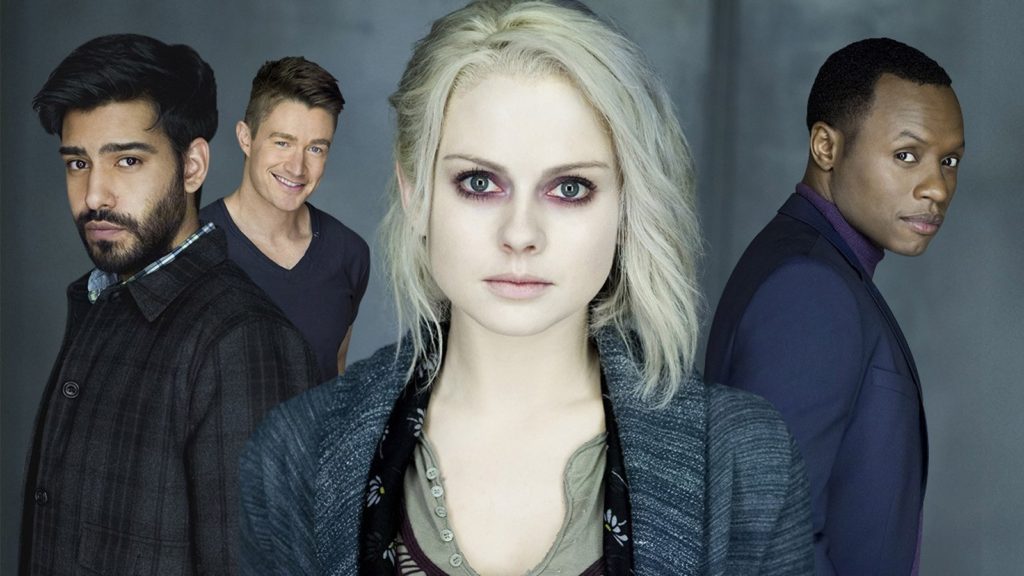
Premise: Promising doctor-turned-zombie Liv Moore works with Seattle PD detective Clive Babineaux to solve murders, by using the visions she gains eating the victims’ brains to feign psychic abilities. Meanwhile, her boss/friend Ravi Chakrabarti finds that even if he can recreate his cure for zombiism, it has unfortunate side effects.
iZombie came back for second season firing on all cylinders. They cut some plotlines that weren’t working (Liv’s family), gave Major a much better story now that’s he’s learned the truth about Liv, Blaine’s way more fun this year now that he’s not the big villain, the big villains they do have are great… sure it’s still a crime procedural based around psychic visions caused through zombie brain consumption, but all in all, iZombie remains thoroughly delightful.
Strengths: With improved stories for Major, the cast doesn’t really have a weak link. We dive deeper into the Seattle zombie population that Blaine created in season one, and the issues Blaine’s having keeping them happy, and how that’s complicated by Vaughn du Clark trying to wipe them out. Personal relationships are allowed to grow and evolve. Really, just about everything works.
Weaknesses: If murder-of-the-week crime procedurals aren’t your thing you might struggle a little with this one.
High point: Max Wager, in which Mr. Boss makes his debut, or Abra Cadaver, in which Liv eats magician brains and it’s the best day for Ravi, but it’s probably Dead Beat/Salvation Army, the two-part finale in which the launch of Max Rager’s newest drink threatens to become a full-blown zombie apocalypse, while Ravi and Blaine must join forces against Boss’ men. And Liv discovers a new player that promises to make season three a whole new thing.
Low point: The Hurt Stalker. Liv eats Stalker brains, and subsequently destroys her life. By the next episode, even Ravi’s desperate to move on from that brain.
Tips for next season: So… that thing that happened in the last few minutes? Let’s just see how that goes.
1. Jessica Jones
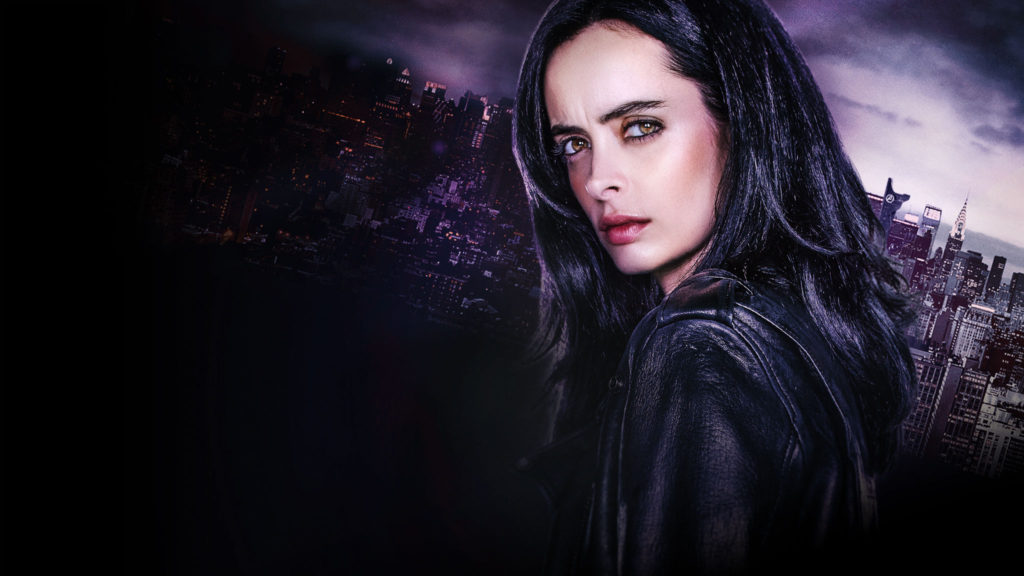
Premise: Super-powered private detective Jessica Jones fights to expose and defeat Kilgrave, the mind-controlling psychopath who once kept her prisoner for weeks on end, out of a twisted sense of love.
Sometimes “bright,” “hopeful,” and “comic-booky” aren’t what you need. Sometimes you want to go the other direction. And if that’s the case, Jessica Jones has you covered. It’s dark, it presents an unlikeable heroine facing a villain that makes your skin crawl, it has streaks of nihilism… it’s also pretty brilliant.
Strengths: The whole cast is top-notch. The series is incredibly bingeable. They never pretend that all of Jessica’s problems have one source or an easy solution. Kilgrave has more depth than most Marvel villains put together. A great introduction to Luke Cage. Best exchange of origin stories ever: “Accident. You?” “Experiment.”
Weaknesses: Agents of SHIELD struggles to be connected to the MCU. Daredevil doesn’t bother much. Jessica Jones seems actively embarrassed to be part of it. When the Avengers are mentioned it’s never by name, merely as “the green guy” and “the flag-waver.” That’s worse than the Supergirl pilot, which seemed full-on allergic to saying “Superman” out loud. Plus I still don’t see Stark/Avengers Tower in the New York skyline, and the whole plot hinges on needing to prove that mind control isn’t impossible in a city where an actual alien invasion was fought off in part by the literal Norse god of thunder. That’s a lot of time I just spent explaining what is, I admit, a minor quibble re: larger franchise continuity. If you don’t care about that, then I’ve got nothing.
High point: AKA WWJD? Jessica and Kilgrave play house as Kilgrave attempts to win over Jessica, and Jessica wonders if she can find a way to redeem the irredeemable. Along the way, they have it out over what, exactly, their past relationship truly was.
Low point: AKA 99 Friends. It’s not bad, per se, but it’s a filler episode, it does end on an awkwardly shot action beat (really more of a tantrum), and you know his name is Captain America, Jessica. “The flag-waver.” Swear to god, if I rewatch this show and catch her namedropping reality TV stars…
Tips for next season: Maybe try mini-arcs, like Daredevil did. Stretching one plotline over 13 episodes can get exhausting. Well, I imagine it might. For people who somehow don’t watch the entire season in two sittings. Whoever they are. Just avoid Daredevil’s mistake and don’t make the last mini-arc poorly-lit garbage.
And that’s the list. Thanks for joining me, those who did, and feel free to leave comments claiming I’m a fool for under/over-valuing something. I’ll just be over here, sulking about having to wait a week for another taste of Preacher.

